
When being tired is not just a lack of sleep
Am I tired or is this exhaustion caused by anxiety?
We all lead very busy lives these days. We are multitasking more and have higher work demands. In addition, we have more social obligations (although perhaps less so during these quarantine days) and less free time. It makes sense that we are tired sometimes. But when does “tired a lot” cross into “exhausted all the time”? Is it normal to feel as tired as you do, or is it a symptom of a deeper issue that needs your attention? How do you know?
But anxiety makes me the opposite of tired!
When we think of the classic signs of anxiety, we don’t often picture someone sleeping. Most often, anxiety strikes when we are worried, scared or embarrassed. We associate it with a hot tingling feeling, making us restless, antsy and confused. We might feel shortness of breath, digestive distress, memory fog or insomnia. But generally, it makes us hyper-awake.
Most of the symptoms we associate with anxiety are of the short-term response it has on our bodies.
Speaking in terms of how humans evolved, the short term response of anxiety is actually a useful tool to help us. We evolved to feel anxiety when something was dangerous or wrong. The uncomfortable feeling anxiety gave us made us react by moving away from the situation, or fighting to change it.
“Reality is the leading cause of stress among those in touch with it.”
- Lily Tomlin
In other words, it is part of the “fight-or-flight” reaction in the body that keeps us safe. So in this way, anxiety is a good thing, because it tells us that something is wrong. As a result, it puts the body in a state where we can best deal with that problem. Yet over the years, the problems have changed. We rarely feel anxiety because we hear the noise of a large predator behind us. Most of the time, we are experiencing those same symptoms lying in bed worrying about bills, our health, and work.

So how can anxiety be related to being tired?
The short term reaction to anxiety may make you hyper-awake and aware, but this state in the body was never intended to last for a very long time. Generally, you would either outrun a dangerous predator or try to fight it off. Either way, that situation of danger should be over in 12 hours tops. Hopefully with you victoriously eating a saber tooth tiger leg over a bonfire.

In contrast, for some of us, worry these days never really seems to stop. We experience those feelings of anxiety almost every moment of every day and sometimes even throughout the night, leading to insomnia. It is this form of long-term anxiety that eventually leads to extreme exhaustion.
Our bodies are not built to sustain the reaction to anxiety for days, weeks, months or years on end. The system put in place to protect us starts to go off the rails and actually cause us harm. The constant state of alertness and hyper-reactivity wears down our system over time. We become tired because we don’t ever take a break from this state.
Left for a long period of time, being tired turns to exhaustion. And that exhaustion turns into an almost zombie-like state of existence. So yes, it is actually possible for anxiety to make you feel hyper-aware and on-edge one minute and absolutely exhausted the next.

How do you know if being tired is caused by anxiety, not lack of sleep?
Like I mentioned before, we all lead very busy lives these days, and sometimes, we just don’t get enough sleep. We might feel tired the next day and yawn a lot, but generally, after a few nights of good sleep, all will go back to normal.
In my personal experience, a genuine “lack-of-sleep” tiredness by itself feels very different from the exhaustion that long-term anxiety can bring on. Because anxiety often causes more sleep issues, the problem can compound in a cycle as well. Suddenly things start feeling worse very quickly.
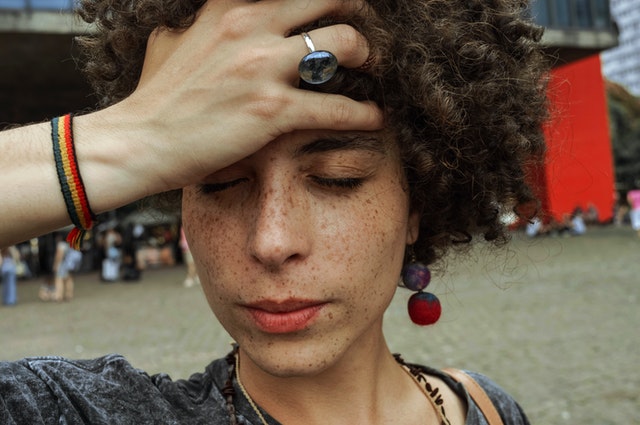
So while the problem of exhaustion, anxiety and sleep is quite intricate and complex, here are a few signs that could be telling you that your tiredness is caused by long-term anxiety, not lack of sleep.
The amount you sleep doesn’t seem to affect it
When we stay up too late, we often feel sluggish and tired the next day. Even if your work schedule requires you to be an early riser, we usually make up for the sleep on our days off. Unless of course you have young kids and sleep deprivation is your new normal.
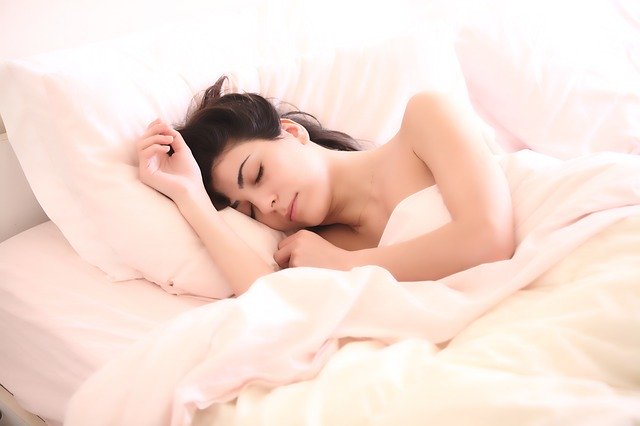
The difference is that the tiredness you feel is usually justified and you know you have been staying up to late (watching that new binge-worthy show). Getting in an extra nap, or sleeping in on your vacation usually sets things right again. You know that after an epic catch-up sleep, you’ll feel refreshed and energized.
When your tiredness is due to anxiety, no amount of sleep seems to reset you that way. No matter how long you get to sleep, you always feel worn out when you wake up. When you nap, you could just keep sleeping all day, yet you never feel restored. This is one major sign that your tiredness may not solely be related to sleep.
Caffeine doesn’t make you less tired
Normally, getting some caffeine is one way to get past that morning sluggishness. Your system takes some time to wake up in the morning. Caffeine helps bridge that gap until the day’s momentum gets you going. Yet when caffeine doesn’t seem to help your ability to function in the morning, it might be a sign that you’re more than just tired. Granted, it can also be a sign that you drink so much caffeine that your body is basically immune to it, but I still think there is a difference.

In my experience, when I tried to use caffeine to break out of my anxiety exhaustion, it only seemed to make things worse. I got a slight haze of alertness, but instead of it being motivating, it made me instantly feel sweaty and on edge. It almost felt like caffeine was replicating my anxiety symptoms. I still barely felt awake, but just a little more irritable and jumpy.
Being tired keeps you from doing things or participating in life
When we’ve been particularly low on sleep, we might start to struggle to do things with enthusiasm during the day. Yet when your tiredness is related to anxiety, the kind of tired you feel will make you not be able to participate or function at all.
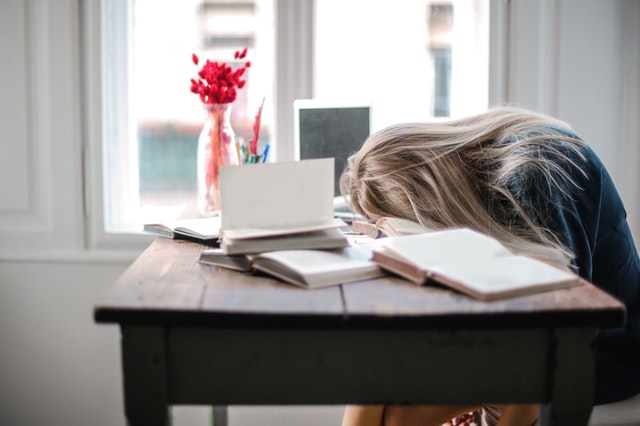
When I was feeling this exhaustion it wasn’t like my eyes were just going to shut. It felt like a heavy wet blanket was being pushed down on my whole body. I literally felt a deep pull to lie down and I couldn’t even stay awake during a conversation. It felt like my consciousness was fading away and it was hard to hang on to wakefulness. This felt a little like a person trying to count to 10 for an anesthesiologist when being put under.
I didn’t feel like I had control over it and that’s why it actually caused me to miss out on so many things. I went to events and had to retreat to the car to nap in the parking lot. Often, I was too tired to join the family on an outing and startled awake when they came in the door 3 hours later. This was a severe kind of tiredness. It felt like my body was just saying “Nope. Right now you will just rest.” And then it was lights out.
You have a hard time falling asleep at night
Many of us deal with the classic anxiety symptom of that never-ending worry in our minds when we lay down to sleep. Like an endless episode of “what if” we just lay awake planning, worrying, thinking and stressing. And then we worry and stress because we haven’t fallen asleep yet. Then we worry and stress because we aren’t supposed to worry and stress so much because it keeps us from sleeping. The anxiety bedtime routine… what a headache!
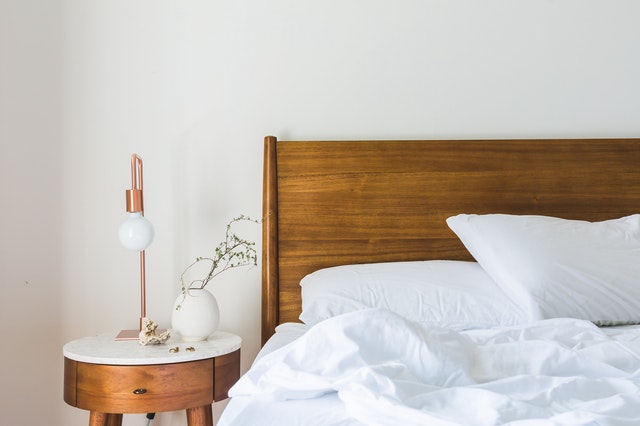
The ironic part in my experience was that I would struggle to stay awake for most of the day, yet as soon as I laid down to sleep at night, it was like a spotlight turned on all my fears and anxieties and I just laid there blinded by the light. How could I be so tired and not be able to sleep?! The next day I would wake up even more tired and anxious and I would do the same thing all over again. It was a cruel and punishing cycle that affected many things in my life.
You also feel chronic pain
The effects of anxiety on the body are far reaching and they affect more than just your levels of sleep. Another sign that your exhaustion might be caused by anxiety is that you have some kind of chronic pain, or stiff, painful joints. If you feel like the rusting tin man when you’re walking up stairs, this could also be a symptom of anxiety. Because long-term anxiety takes such a toll on the body, pain and inflammation are common symptoms.
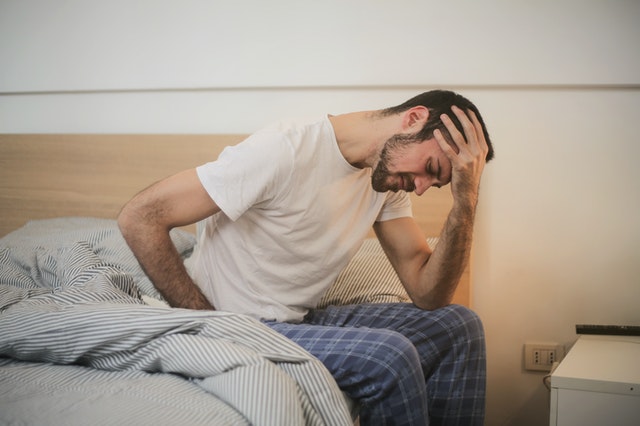
It is especially common to feel vague but persistent pain that wasn’t caused by an injury or obvious problem. Back pain, aching joints, or neck pain are common areas where the stress of anxiety “settles” in the body. Often no cause can be determined, even after a thorough examination by your doctor.
In my case, I started to feel like it was in my head because my doctor was so dismissive of these symptoms. They felt severe to me and I struggled with back pain and headaches almost every day. But when all the tests came back clear I felt like my own body was lying to me. The truth is that we don’t yet have any tests that can detect this complex level of interaction of continued stress on the body. It doesn’t show in the blood and all bones are still in the right place. But it doesn’t make the pain any more manageable.
You are experiencing other symptoms of anxiety
Your exhaustion is more likely linked to anxiety if you’re experiencing other symptoms of anxiety as well. Having digestive problems is a very common problem caused by anxiety. You may experience bouts of diarrhea, constipation or both.
Getting sick a lot is another sign of anxiety in general. Do you feel like you get every cold and sniffle that’s going around? Do you have different ailments back-to-back that seem to come out of the blue? Are you sick a lot more than other people in your house or even your friends? This might be a sign of the weakened immune system that long-term anxiety can cause.
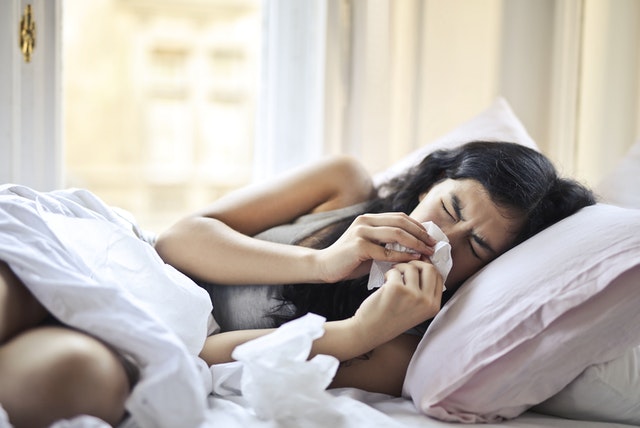
Having a permanent “brain fog” might be another sign that you might be suffering from anxiety. The constant state of worry leaves your brain preoccupied and exhausted. The unpleasant result is a jumbled mind. You may have memory problems, you may not be able to focus or concentrate, and you might just feel very confused over simple things.
For me, this symptom was quite severe and debilitating, to the point where I needed sticky notes and reminders on my phone to remember how to function in my day. My brain felt like mashed potatoes and I often found myself standing in a room with no idea what I had come to do. Declining brain function was a major red flag for me.

The Takeaway
Generally, if you are experiencing any of the above symptoms, they may be signs that your constant tiredness is coming from more than just a lack of sleep. Because catching up on sleep won’t alleviate how you feel, it’s important to take steps to diagnose the problem properly. You should always start with your doctor, but if you are not getting any answers, try a different angle like a therapist or psychologist. Addressing this from a mental health standpoint might give you a lot more answers.

Once you come to understand what is happening in your body to make it react the way it does, you can find ways to improve the symptoms. Just be aware that this will likely mean making necessary adjustments in your life to work with your stress and anxiety. I feel like often we just keep putting things off like “this weekend we will catch up on some sleep…” and we never really do. As a result, things never really get better.
Anxiety can be a complex and confusing condition and everyone feels the symptoms differently.
It’s important to listen to what your body is telling you and take a step back to learn how to help it heal. Healthcare professionals are learning more and more about chronic stress and anxiety. Unfortunately, because the number of people affected are drastically on the rise. But this also means that more and more healthcare professionals will be able to help with stress and anxiety going forward.
You know your body best, so make sure you get the help you need to find your well-being again. You deserve to heal and find your spark again!
